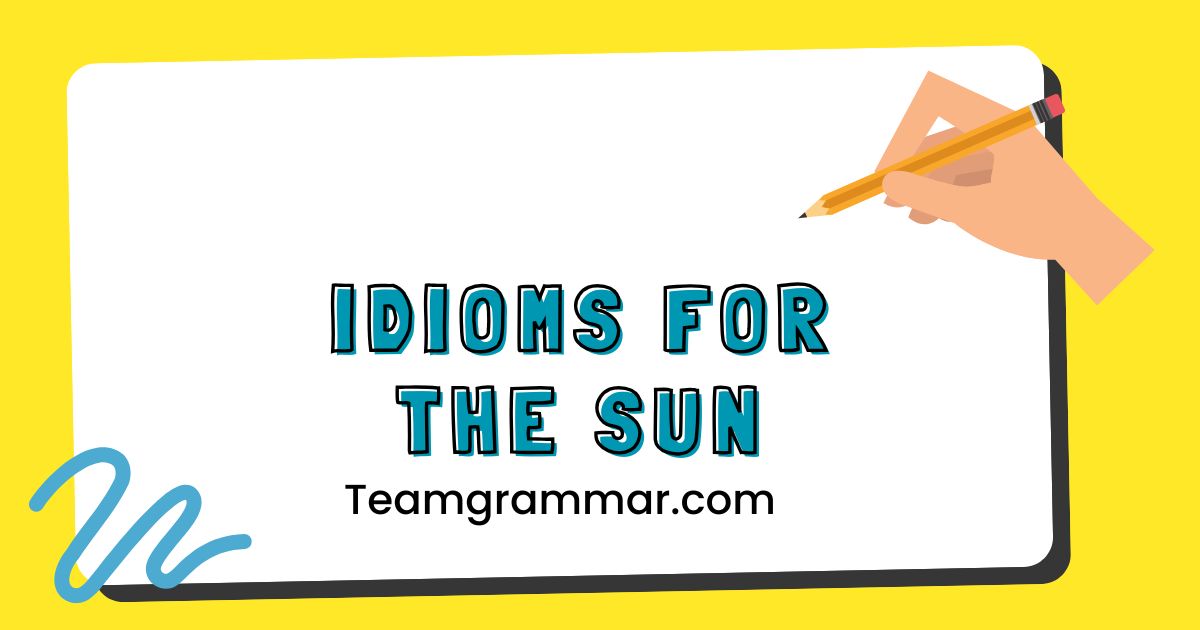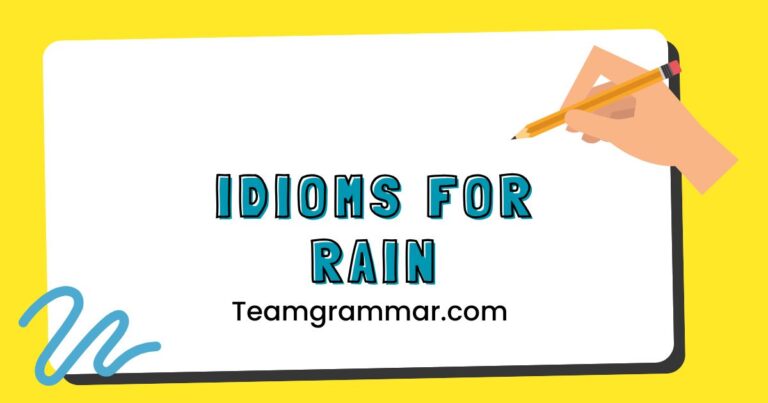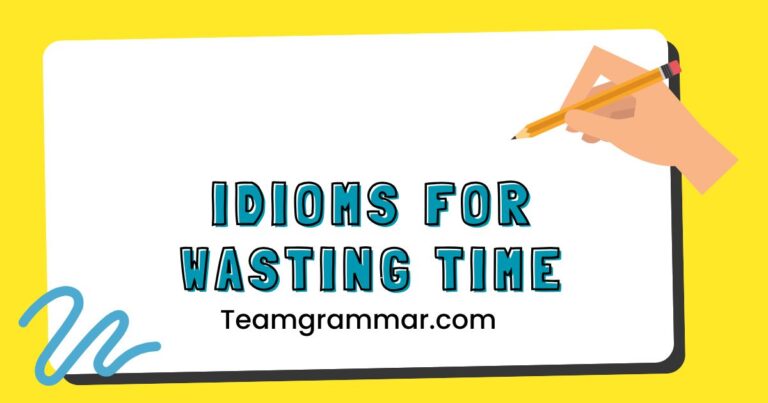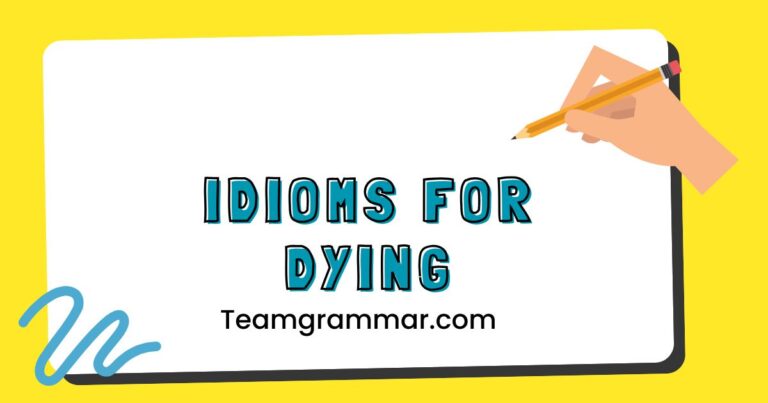39 Idioms for the Sun: Illuminating English Expressions
The sun, a universal symbol of warmth, light, and energy, has inspired countless idioms in the English language. These idioms enrich our conversations and writing, adding color and depth to our expressions.
Understanding idioms related to the sun not only enhances your vocabulary but also provides insights into cultural perspectives and metaphorical thinking. This article explores a wide array of sun-related idioms, their meanings, origins, and usage, making it an invaluable resource for English learners of all levels.
Whether you’re a beginner aiming to grasp basic expressions or an advanced learner seeking to refine your understanding of nuanced language, this comprehensive guide will equip you with the knowledge and skills to confidently use sun-related idioms. Dive in to discover how these radiant phrases can brighten your communication and deepen your appreciation for the English language.
Table of Contents
- Definition of Idioms and Sun-Related Idioms
- Structural Breakdown of Sun Idioms
- Types and Categories of Sun Idioms
- Examples of Sun Idioms
- Usage Rules for Sun Idioms
- Common Mistakes with Sun Idioms
- Practice Exercises
- Advanced Topics
- FAQ
- Conclusion
Definition of Idioms and Sun-Related Idioms
Anidiomis a phrase or expression whose meaning cannot be understood from the literal meanings of the individual words within it. Instead, idioms have a figurative meaning that is understood culturally.
Idioms are an integral part of any language, adding richness and nuance to communication. They often reflect the history, culture, and values of a particular society.
Sun-related idiomsare idioms that use the sun as a central image or metaphor to convey a particular meaning. These idioms leverage the sun’s symbolic associations with light, warmth, energy, and time to express a wide range of concepts and emotions.
They can describe someone’s personality, a situation’s outlook, or even the passage of time. The sun, being a powerful and universally recognized symbol, makes these idioms particularly effective and evocative.
Structural Breakdown of Sun Idioms
Sun idioms can vary greatly in their structure, but they often involve common grammatical patterns. Understanding these patterns can help in recognizing and interpreting new idioms.
Here are some common structural elements:
- Noun Phrases: Many sun idioms use the sun as a noun within a larger phrase. For example, “a place in the sun” uses “sun” as a noun in a prepositional phrase.
- Verb Phrases: Some idioms incorporate verbs to describe the sun’s actions or effects, often metaphorically. An example is “to bask in the sun,” where “bask” suggests enjoying something pleasant.
- Adjectival Phrases: Adjectives can modify “sun” to create specific meanings. For instance, “under the sun” implies everything imaginable.
- Similes and Metaphors: Sun idioms frequently employ similes (using “like” or “as”) or metaphors to draw comparisons. For example, “as bright as the sun” is a simile highlighting brilliance.
The structure of these idioms often contributes to their figurative meaning. The context in which they are used is also crucial for proper understanding.
By analyzing the grammatical structure and considering the context, one can more easily decipher the intended meaning of a sun-related idiom.
Types and Categories of Sun Idioms
Sun idioms can be categorized based on their meanings and the aspects of the sun they emphasize. Here are some common categories:
Idioms Describing the Sun’s Appearance
These idioms focus on the visual characteristics of the sun, such as its brightness, color, and position in the sky. They often describe something that is radiant, clear, or prominent.
Idioms Describing the Sun’s Influence
These idioms highlight the sun’s impact on the environment and people, emphasizing its warmth, energy, and life-giving properties. They often describe positive or revitalizing effects.
Idioms Related to Time and the Sun
These idioms connect the sun’s movement with the passage of time, marking specific periods or events. They often refer to beginnings, endings, or the duration of activities.
Idioms with Positive Connotations
These idioms use the sun to represent positive emotions, experiences, or qualities. They often convey happiness, success, or well-being.
Idioms with Negative Connotations
These idioms use the sun to represent negative emotions, experiences, or situations. They often convey feelings of being overwhelmed, exposed, or negatively affected by something.
Examples of Sun Idioms
Here are several examples of sun idioms, categorized by their primary meaning or emphasis. Each example includes a definition and example sentence to illustrate its usage.
Examples Related to Appearance
The following table presents idioms that describe the appearance of the sun or use its visual characteristics metaphorically. These idioms often relate to brightness, clarity, and prominence.
| Idiom | Definition | Example Sentence |
|---|---|---|
| As bright as the sun | Extremely radiant or intelligent. | Her smile was as bright as the sun, lighting up the entire room. |
| Under the sun | Everything in the world; everything imaginable. | They sell every kind of gadget under the sun at that store. |
| Catch some rays | To sunbathe; to spend time in the sun. | We decided to go to the beach to catch some rays. |
| Sun-kissed | Having a tan from the sun. | After a week at the beach, she had a beautiful sun-kissed glow. |
| Sunbeam | A ray of sunlight; something that brings joy or happiness. | Her laughter was like a sunbeam, brightening everyone’s day. |
| Rising sun | A symbol of new beginnings, hope, or a nation’s power. | The company’s logo features a rising sun, symbolizing their ambition. |
| Bask in the sun | To enjoy the warmth and light of the sun; to relish in something pleasant. | We spent the afternoon basking in the sun on the patio. |
| Have one’s day in the sun | To enjoy a period of success or fame. | Every athlete dreams of having their day in the sun at the Olympics. |
| Nothing new under the sun | There is nothing that has not happened before; everything is a repetition of the past. | He claimed his invention was revolutionary, but there’s really nothing new under the sun. |
| To make hay while the sun shines | To take advantage of favorable conditions while they last. | The business is booming, so we’re trying to make hay while the sun shines. |
| The sun shines on the righteous | Good things happen to good people. | After years of hard work, she finally achieved her dream; the sun shines on the righteous. |
| Steal someone’s sunshine | To ruin someone’s happiness or good mood. | I didn’t want to steal her sunshine by telling her my bad news. |
| A place in the sun | A position of comfort, success, or happiness. | After years of struggling, he finally found his place in the sun. |
| Like trying to catch the sun with a butterfly net | Attempting something impossible or futile. | Trying to convince him to change his mind is like trying to catch the sun with a butterfly net. |
| As sure as the sun rises | Absolutely certain; guaranteed. | I’ll be there for you, as sure as the sun rises tomorrow. |
| To think the sun shines out of someone’s backside | To have a very high opinion of someone; to idolize them. | She thinks the sun shines out of her son’s backside, even when he makes mistakes. |
| When the sun turns to ice | Never; something that will never happen. | He’ll admit he’s wrong when the sun turns to ice. |
| Chase rainbows | Pursue unrealistic goals. | She quit her stable job to chase rainbows, hoping to become a famous actress. |
| Every cloud has a silver lining | Even in bad situations, there is always something positive. | Although she lost her job, she realized every cloud has a silver lining, as she now had time to pursue her passion. |
| Look on the bright side | Be optimistic. | Even though the project failed, he tried to look on the bright side and learn from the experience. |
Examples Related to Influence
The following table provides idioms that describe the influence or impact of the sun, often emphasizing its warmth, energy, or revitalizing effects. These idioms can also describe the impact of people or events.
| Idiom | Definition | Example Sentence |
|---|---|---|
| Sunshine on my shoulders | Feeling happy and uplifted. | His kind words were like sunshine on my shoulders, cheering me up instantly. |
| Under the sun | Everything in existence; all things possible. | There’s nothing new under the sun; everything has been done before. |
| Soak up the sun | To spend time relaxing in the sun. | We went to the beach to soak up the sun and enjoy the warm weather. |
| Worship the sun | To spend a lot of time sunbathing. | She loves to worship the sun whenever she gets the chance. |
| Bring sunshine into their life | To make someone happy. | Her visit really brought sunshine into his life after a long illness. |
| Come rain or shine | No matter what happens; regardless of the circumstances. | I’ll be there for you, come rain or shine. |
| A ray of sunshine | Someone or something that makes you feel happy. | Her smile is like a ray of sunshine on a cloudy day. |
| Brighten up someone’s day | To make someone feel happier. | Just hearing from you really brightened up my day. |
| After a storm comes a calm | Difficult times are followed by peace and tranquility. | After a long period of financial struggles, the family finally achieved stability; after a storm comes a calm. |
| When it rains, it pours | When bad things happen, they tend to happen all at once. | First, she lost her job, then her car broke down; when it rains, it pours. |
| Calm before the storm | A period of peace and quiet before a period of trouble or intense activity. | The quiet morning was the calm before the storm, as the afternoon brought unexpected chaos. |
| Get wind of something | Hear a rumor or piece of information. | I got wind of the company’s plans to downsize, but I don’t know if it’s true. |
| Have your head in the clouds | Be unrealistic or impractical. | He’s always had his head in the clouds, dreaming of becoming an astronaut. |
| Clear the air | Resolve a conflict or misunderstanding. | After the argument, they decided to sit down and clear the air. |
| A breath of fresh air | Something new and refreshing. | Her innovative ideas were a breath of fresh air to the company. |
| Under the weather | Feeling unwell. | I’m feeling a bit under the weather today, so I’m staying home from work. |
| Weather the storm | Survive a difficult situation. | The company managed to weather the storm of the financial crisis. |
| To throw caution to the wind | To act recklessly or without concern for consequences. | They threw caution to the wind and went skydiving. |
| Full of hot air | Talking nonsense or exaggerating. | His speech was full of hot air and empty promises. |
| As different as night and day | Completely different. | Their personalities are as different as night and day. |
Examples Related to Time
This table contains idioms that use the sun to refer to specific times or periods. These idioms often relate to daily routines, beginnings, and endings.
| Idiom | Definition | Example Sentence |
|---|---|---|
| Sunrise | The time when the sun appears in the morning; a new beginning. | We woke up early to watch the sunrise over the ocean. |
| Sunset | The time when the sun disappears in the evening; the end of something. | They sat on the beach and watched the beautiful sunset. |
| From sunrise to sunset | All day long; from morning until evening. | The farmers worked from sunrise to sunset during the harvest season. |
| The sun never sets on the British Empire | A historical reference to the British Empire’s vast reach, implying its power was always present somewhere in the world. | Historically, it was said that the sun never sets on the British Empire due to its global colonies. |
| Before sunrise | Early in the morning, before the sun appears. | The fishermen were out on the sea before sunrise. |
| After sunset | In the evening, after the sun has disappeared. | The park is closed to the public after sunset. |
| Under the midday sun | During the hottest part of the day. | They labored in the fields under the midday sun. |
| Clear as day | Very obvious or easy to understand. | It’s clear as day that he’s in love with her. |
| In broad daylight | During the day, when it’s easily visible. | The robbery happened in broad daylight. |
| Once in a blue moon | Very rarely. | We only see each other once in a blue moon. |
| Many moons ago | A long time ago. | Many moons ago, I used to live in Europe. |
| Day in, day out | Every day for a long period of time. | He does the same job day in, day out. |
| Call it a day | Stop working on something. | It’s getting late, let’s call it a day. |
| Save something for a rainy day | Save something for a time when it might be needed. | It’s a good idea to save some money for a rainy day. |
| As the day is long | Very long. | The list of tasks is as long as the day is long. |
| Make someone’s day | To make someone feel happy or pleased. | Your kind words really made my day. |
| The other day | A few days ago. | I saw her at the store the other day. |
| Those were the days | Used to express nostalgia for a past time. | Those were the days, when we had no responsibilities. |
| One of these days | At some point in the future. | I’m going to travel the world one of these days. |
| In this day and age | Now; in modern times. | In this day and age, technology is essential. |
Examples with Positive Connotations
The following table illustrates idioms that use the sun to represent positive emotions, experiences, or qualities. These idioms often convey happiness, optimism, and success.
| Idiom | Definition | Example Sentence |
|---|---|---|
| Sunshine | Happiness; cheerfulness. | Her smile brought sunshine into my life. |
| A ray of sunshine | Someone or something that brings happiness. | My granddaughter is a ray of sunshine in our family. |
| Bask in glory | To enjoy praise and admiration. | After winning the championship, the team basked in glory. |
| Every cloud has a silver lining | There is something positive even in a difficult situation. | Although he lost his job, he remembered that every cloud has a silver lining. |
| Look on the bright side | To be optimistic; to focus on the positive aspects. | Even though we lost the game, we should look on the bright side and learn from our mistakes. |
| Brighten up | To become happier or more cheerful. | The room brightened up when she walked in. |
| A sunny disposition | A cheerful and optimistic attitude. | She has a sunny disposition that makes everyone around her feel happy. |
| Golden opportunity | A very good chance to do something. | This is a golden opportunity to invest in the company. |
| Silver lining | A positive aspect of a negative situation. | The silver lining of losing my job is that I can now pursue my passion for writing. |
| See the light | Understand something after a period of confusion. | After hours of explanation, he finally saw the light and understood the complex concept. |
| Things are looking up | Things are improving. | After a rough start, things are finally looking up for the company. |
| On top of the world | Feeling extremely happy or successful. | After winning the award, she felt on top of the world. |
| A bright future | A promising future. | The young graduate had a bright future ahead of him. |
| The sky’s the limit | There are no limits to what can be achieved. | With hard work and dedication, the sky’s the limit. |
| To be sitting pretty | To be in a fortunate or advantageous position. | After the successful deal, they were sitting pretty. |
| To come up roses | To end well or successfully, despite initial difficulties. | Despite the initial setbacks, the project came up roses in the end. |
| A bed of roses | An easy and comfortable situation. | Life isn’t always a bed of roses; there will be challenges. |
| Paint a rosy picture | To describe a situation as more positive than it really is. | The company painted a rosy picture of their financial situation to attract investors. |
| Everything’s coming up roses | Everything is going well. | Since starting his new job, everything’s coming up roses for him. |
| Brighten someone’s horizon | To improve someone’s prospects or mood. | Her encouragement helped to brighten his horizon. |
Examples with Negative Connotations
This table presents idioms that use the sun to represent negative emotions, experiences, or situations. These idioms often convey feelings of being overwhelmed, exposed, or negatively affected by something.
| Idiom | Definition | Example Sentence |
|---|---|---|
| Too much sun | Being overwhelmed or exposed to something excessively. | He got too much sun and ended up with a terrible sunburn. |
| Steal someone’s sunshine | To ruin someone’s happiness or good mood. | I didn’t want to steal her sunshine by telling her my bad news. |
| A shadow of your former self | Not as strong or healthy as you used to be. | After the illness, he was just a shadow of his former self. |
| Cloud over | To become sad or gloomy. | Her face clouded over when she heard the bad news. |
| Under a cloud | Under suspicion or disgrace. | He left the company under a cloud after the scandal. |
| Darken someone’s door | To visit someone’s house and cause trouble or unhappiness. | Don’t you ever darken my door again! |
| Dark days | Times of trouble or unhappiness. | The country went through some dark days during the war. |
| Black cloud | A feeling of impending doom or misfortune. | There’s always a black cloud hanging over him. |
| When it rains, it pours | When bad things happen, they tend to happen all at once. | First, she lost her job, then her car broke down; when it rains, it pours. |
| Darken the door | To visit a place that is unwelcome. | He’s not welcome here; he should never darken our door again. |
| A storm is brewing | Trouble is coming. | The tense atmosphere suggested that a storm was brewing. |
| Chase rainbows | Pursue unrealistic goals. | She quit her stable job to chase rainbows, hoping to become a famous actress. |
| Every cloud has a silver lining | Even in bad situations, there is always something positive. | Although she lost her job, she realized every cloud has a silver lining, as she now had time to pursue her passion. |
| Look on the bright side | Be optimistic. | Even though the project failed, he tried to look on the bright side and learn from the experience. |
| As different as night and day | Completely different. | Their personalities are as different as night and day. |
| To be snowed under | To be overwhelmed with a large amount of work or tasks. | I’m completely snowed under with paperwork this week. |
| To be left out in the cold | To be ignored or excluded. | She felt left out in the cold when her friends went to the party without her. |
| To be caught in the crossfire | To be unintentionally involved in a conflict or argument. | The innocent bystanders were caught in the crossfire during the protest. |
| To be a flash in the pan | Something that shows initial promise but fails to deliver long-term success. | The band’s first hit was a flash in the pan; they never had another successful song. |
| To have your head in the clouds | To be unrealistic or impractical. | He’s always had his head in the clouds, dreaming of becoming an astronaut. |
Usage Rules for Sun Idioms
Using sun idioms correctly involves understanding their figurative meanings and applying them in appropriate contexts. Here are some key rules to follow:
- Understand the Meaning: Before using an idiom, ensure you fully understand its meaning. Misusing an idiom can lead to confusion or miscommunication.
- Consider the Context: Idioms are context-dependent. The meaning of an idiom can change slightly based on the situation.
- Use Appropriately: Sun idioms are generally informal and should be used in casual conversations, creative writing, or informal presentations. Avoid using them in formal academic writing or professional reports unless they are used intentionally for stylistic effect.
- Avoid Overuse: While idioms can enrich language, overuse can make your speech sound unnatural or contrived. Use them sparingly and purposefully.
- Be Aware of Cultural Differences: Idioms are often culturally specific. Ensure your audience understands the idiom you are using, especially when communicating with non-native speakers.
By keeping these rules in mind, you can effectively incorporate sun idioms into your communication, adding color and depth to your expressions.
Common Mistakes with Sun Idioms
Even advanced English learners can make mistakes when using idioms. Here are some common errors to watch out for:
- Literal Interpretation: The most common mistake is interpreting an idiom literally. Remember that idioms have figurative meanings that differ from the individual words’ definitions.
- Incorrect Word Choice: Using the wrong words within an idiom can change its meaning or make it nonsensical. For example, saying “catch some moons” instead of “catch some rays” is incorrect.
- Misunderstanding the Context: Using an idiom in an inappropriate context can lead to confusion. Ensure the idiom fits the situation and tone of the conversation.
- Overusing Idioms: Too many idioms can make your speech sound unnatural. Use them sparingly to enhance your language without overwhelming your audience.
Here are some examples of correct and incorrect usage:
| Incorrect | Correct | Explanation |
|---|---|---|
| He is shining like a sun. | He is as bright as the sun. | The simile requires “as bright as,” not “shining like.” |
| She took too much moon. | She got too much sun. | The idiom uses “sun,” not “moon,” to indicate overexposure. |
| Let’s call it a moon. | Let’s call it a day. | The correct idiom is “call it a day,” meaning to stop working. |
Practice Exercises
Test your understanding of sun idioms with the following exercises.
Exercise 1: Fill in the Blanks
Complete the following sentences with the appropriate sun idiom from the list below.
Idiom List: as bright as the sun, under the sun, catch some rays, sun-kissed, ray of sunshine, make hay while the sun shines, steal someone’s sunshine, a place in the sun, as sure as the sun rises, call it a day
| # | Question | Answer |
|---|---|---|
| 1 | Her smile is _______________, it always lights up the room. | as bright as the sun |
| 2 | Let’s go to the beach and _______________. | catch some rays |
| 3 | She has a _______________ complexion after her vacation. | sun-kissed |
| 4 | She is a _______________ in our otherwise gloomy office. | ray of sunshine |
| 5 | There’s nothing new _______________. | under the sun |
| 6 | We need to _______________ and finish the project quickly. | make hay while the sun shines |
| 7 | I didn’t want to _______________ by telling her my bad news. | steal someone’s sunshine |
| 8 | He finally found _______________ after years of hard work. | a place in the sun |
| 9 | I will be there for you, _______________. | as sure as the sun rises |
| 10 | It’s getting late, let’s _______________. | call it a day |
Exercise 2: Matching Idioms to Definitions
Match the following idioms to their correct definitions.
| # | Idiom | Definition | Answer |
|---|---|---|---|
| 1 | Every cloud has a silver lining | A) Feeling extremely happy or successful | A |
| 2 | Once in a blue moon | B) A very good chance to do something | B |
| 3 | Golden opportunity | C) Very rarely | C |
| 4 | On top of the world | D) There is something positive even in a difficult situation | D |
Exercise 3: Using Idioms in Sentences
Create your own sentences using the following sun idioms.
- Sunshine on my shoulders
- Under the weather
- Clear as day
- Save it for a rainy day
- Brighten someone’s day
Example Answers:
- His kind words were like sunshine on my shoulders, cheering me up instantly.
- I’m feeling a bit under the weather today, so I’m staying home from work.
- It’s clear as day that he’s in love with her.
- It’s a good idea to save some money for a rainy day.
- Just hearing from you really brightened up my day.
Advanced Topics
For advanced learners, exploring the etymology and cultural significance of sun idioms can provide deeper insight. Many sun idioms have historical roots, reflecting ancient beliefs about the sun’s power and influence.
For example, the idiom “the sun never sets on
the British Empire” is rooted in the historical reality of the British Empire’s vast global presence.
Additionally, consider how sun idioms vary across different cultures and languages. While some idioms may have direct equivalents in other languages, others may be unique to English, reflecting specific cultural perspectives.
Analyzing these differences can enhance your cross-cultural communication skills and broaden your understanding of linguistic diversity.
FAQ
Why are idioms important in English?
Idioms are important because they add depth, color, and nuance to the English language. They are frequently used in everyday conversation and literature, and understanding them is essential for effective communication.
How can I improve my understanding of idioms?
To improve your understanding of idioms, focus on reading widely, listening to native speakers, and using idioms in your own speech and writing. Pay attention to the context in which idioms are used and look up their meanings when you encounter unfamiliar ones.
Are sun idioms used in formal writing?
Sun idioms are generally informal and should be used sparingly in formal writing. However, they can be used intentionally for stylistic effect, such as in creative writing or persuasive essays.
Can the meaning of sun idioms change over time?
Yes, the meanings of idioms can evolve over time due to cultural shifts and changes in language usage. It’s important to stay updated on the current meanings and connotations of idioms to use them correctly.
Conclusion
Sun idioms offer a fascinating glimpse into the metaphorical richness of the English language. By understanding their meanings, origins, and usage, you can enhance your communication skills and appreciate the cultural significance embedded within these expressions.
Whether you’re describing someone’s radiant smile or navigating a difficult situation, sun idioms provide vivid and evocative ways to convey your thoughts and emotions. Continue to explore and practice using these idioms to brighten your English vocabulary and deepen your linguistic fluency.







